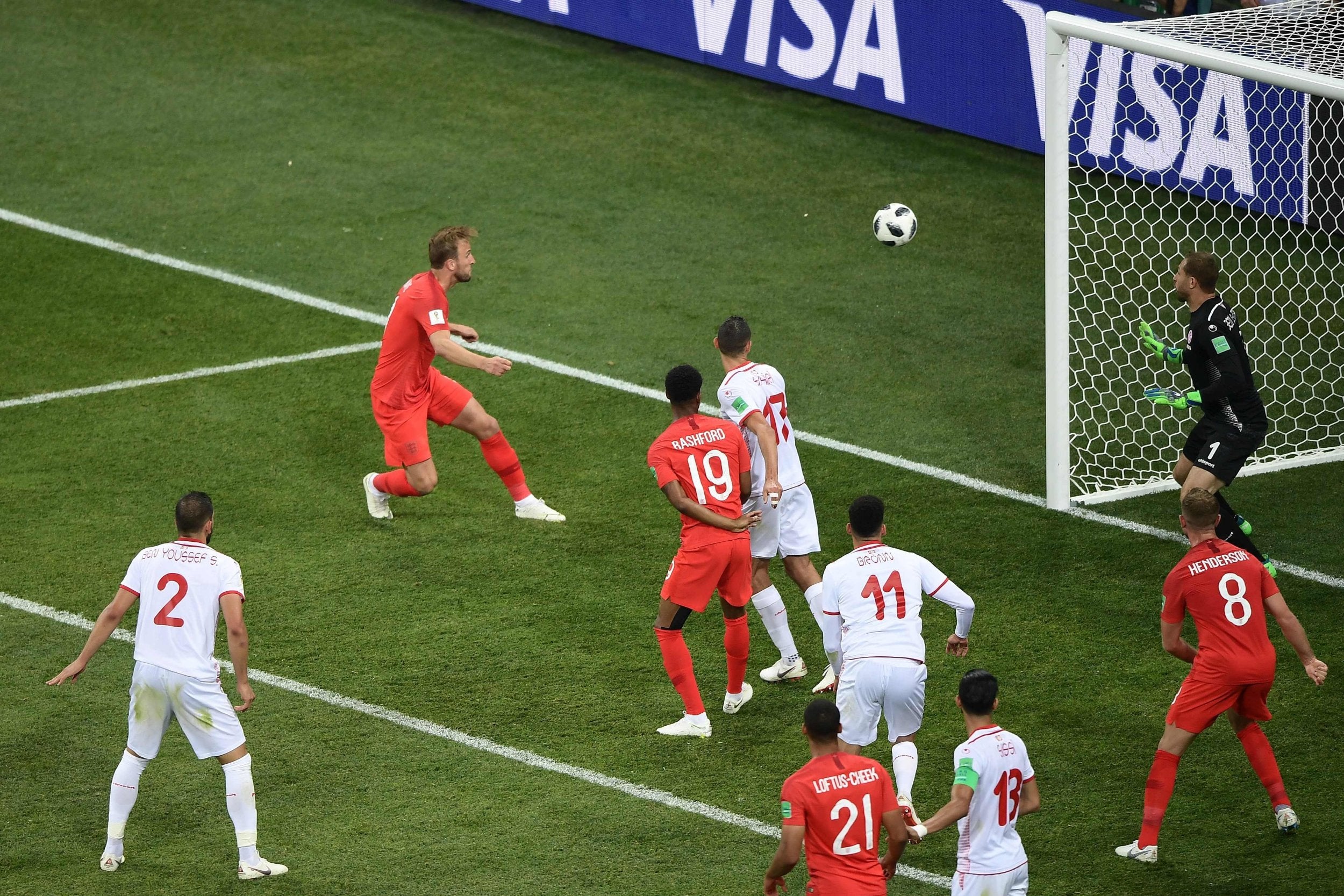England might have ridden their luck against Tunisia but they overcame the World Cup’s early trend
England did not play well in the second half in Volgograd but there is something in the idea that they stuck to their principles and eventually got their rewards – unlike other major nations

Your support helps us to tell the story
From reproductive rights to climate change to Big Tech, The Independent is on the ground when the story is developing. Whether it's investigating the financials of Elon Musk's pro-Trump PAC or producing our latest documentary, 'The A Word', which shines a light on the American women fighting for reproductive rights, we know how important it is to parse out the facts from the messaging.
At such a critical moment in US history, we need reporters on the ground. Your donation allows us to keep sending journalists to speak to both sides of the story.
The Independent is trusted by Americans across the entire political spectrum. And unlike many other quality news outlets, we choose not to lock Americans out of our reporting and analysis with paywalls. We believe quality journalism should be available to everyone, paid for by those who can afford it.
Your support makes all the difference.It may not have been obvious at the time from the stands of the Volgograd Arena, but the message from the England camp after their 2-1 win over Tunisia is that the players always felt that their winner was inevitable, long before Harry Kane proved them right with that famous far-post nodded header.
That might sound like a minor point in retrospect but it speaks to a far bigger issue about England’s much-debated second half performance: was Kane’s winner the product of 45 minutes of patient hard-work wearing Tunisia down? Or was it a more random occurrence, the fortunate second-ball bounce from a hopeful corner. In short, was it deserved, or lucky?
There is a view – one held by this reporter – that England were poor in the second half in Volgograd. That they utterly failed to replicate the intensity of the start of the first half. They failed to create any real open-play chances, unlike the opening 20 minutes when they cut through Tunisia with nearly every attack. The performance looked like a very common one from the England tournament playbook, as a good first half gave way to frustration and a lack of ideas in the second half.
But that was not the view of the England manager or players. When Gareth Southgate and Kieran Trippier spoke to the press late on Monday night they both praised England’s patience, and the fact that they did not get too desperate in pursuit of a winner. It was in sticking to the plan, when it might have been easier to rip it up, that brought Kane’s winner about.
Southgate said that England’s discipline with the ball helped to tire out Tunisia, eventually creating the room for Kane’s late header. “We kept our composure and in the second half we dominated the game,” Southgate said. “I was really pleased with the patience we showed in waiting to create good openings and not just put the ball in the box from anywhere. In the end the sustained pressure caused them to tire and I thought we were a real attacking threat at set plays all night.”
Kieran Trippier spent the whole evening pushing up and down the right wing, delivering dangerous crosses and corners from his side. And when he discussed England’s second half, he went even further than his manager. Not just that England’s patient play caused and deserved the winner, but that the players always knew they would score in the end.

“We’ve got experience all over the field, so we don’t panic about the game,” Trippier said. “We knew it was going to come because we created so many chances in the game. We just needed to be clinical. But we took our time, we knew the second goal would come, we just didn’t want it to be this late.”
Like Southgate, Trippier pointed to the fact that England did not start throwing the ball into the box when they were desperate, but in fact continued to play the right way. Even when that meant going against their instincts. “Obviously you want the three points, but at 1-1 we weren’t panicking,” he said. “We weren’t rushing things. We just had great character. We didn’t panic, nice and tidy and taking our time.”
Maybe there is a desire in victory to make it look pre-ordained, inevitable and utterly deserved. But there is also a truth we have to acknowledge about this World Cup, which is that it is not always as easy for big teams to break down lesser ones as they may expect. Look at Uruguay’s struggle against Egypt, France against Australia, Argentina against Iceland, Germany against Mexico or Brazil against Switzerland.
Different games, of course, and against sides stronger than Tunisia. But a demonstration that having the best players is not always good enough to win. And suggesting that even if England did get lucky in Volgograd on Monday, that their lack of chances in the second half might not quite have been the failure it first looked.
Join our commenting forum
Join thought-provoking conversations, follow other Independent readers and see their replies
Comments